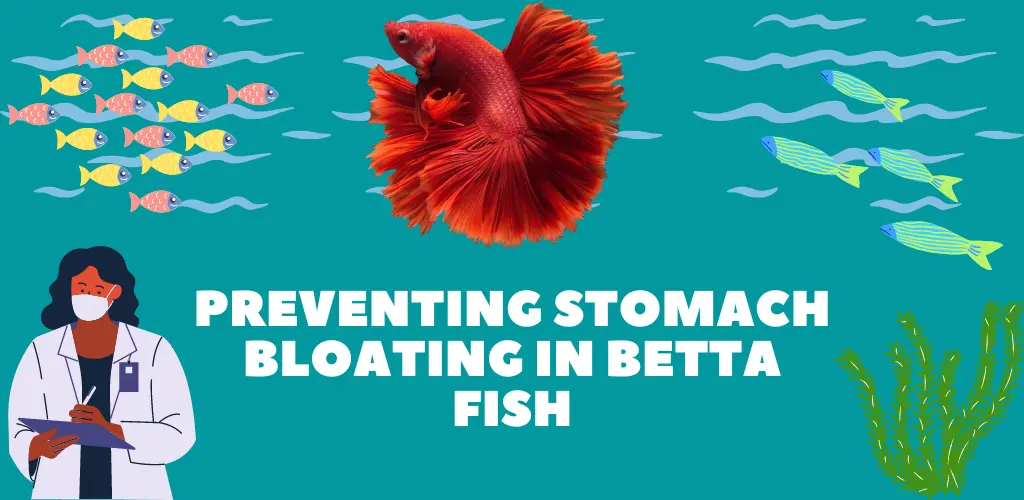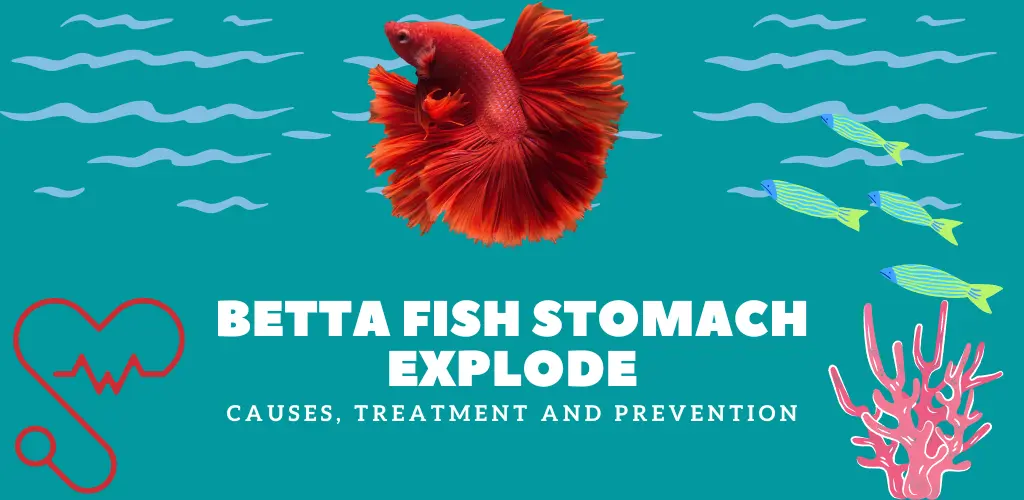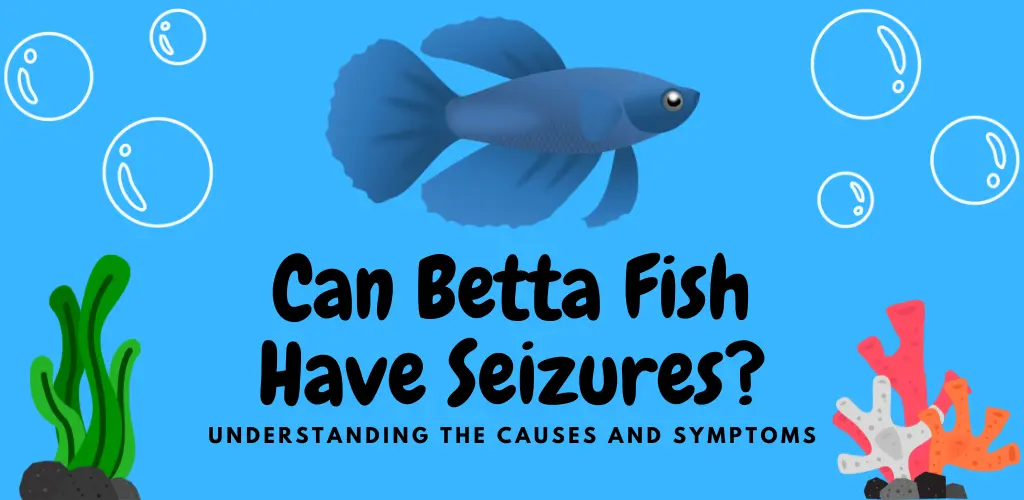Betta fish, also known as Siamese fighting fish, are famous pets due to their bright colors and easy care. However, like all pets, they can occasionally experience health issues. One common problem betta fish may face is stomach bloating, which can be uncomfortable and even life-threatening if left untreated. This article will discuss the causes of stomach bloating in betta fish and the treatment options available and help you prevent Betta Fish Stomach Explode.
What is Betta Fish Stomach Bloating?
Betta fish stomach bloating, also known as dropsy, is a condition in which the betta fish’s stomach becomes enlarged and swollen, often accompanied by a loss of appetite and lethargy. Betta Bloated Stomach can be caused by various factors, including poor diet, infection, and organ failure.
What Causes Stomach Explode in Betta Fish?
There are several possible causes of stomach bloating in betta fish, including:
Constipation
Like humans, betta fish can become constipated if they are not eating enough fiber or overeating dry food. Constipation can cause the fish’s stomach to become bloated and uncomfortable.
Infection
Betta fish can develop conditions in their digestive system, which can cause stomach bloating and other symptoms such as lethargy and loss of appetite. Bacteria, parasites, or other pathogens can cause these infections.
Poor water quality
If the water in the betta fish’s tank is not clean or the pH is not balanced correctly, it can lead to stomach bloating and other health problems.
Overfeeding
Betta fish have small stomachs and cannot eat large amounts of food at once. Overfeeding can cause the fish’s belly to become bloated, leading to other health problems.
Symptoms of Bloated Betta Fish

Betta fish swollen belly is when the betta’s abdomen becomes enlarged, distended, and swollen, causing discomfort and potentially severe health problems. Understanding the symptoms of this condition is essential for betta owners to ensure their fish receive prompt and proper care.
Distended Abdomen
One of the most noticeable symptoms of Betta fish stomach bloating is a swollen or bloated abdomen. The betta’s belly will appear larger than usual and may be rounded or bulging. This indicates that the fish is suffering from bloating and that prompt attention is required.
Loss of Appetite
Betta fish with stomach bloating may experience a decrease in appetite or stop eating altogether. This can signify that the bloating is causing discomfort or pain for the fish and that they are no longer interested in eating.
Lethargy
Another common symptom of Betta fish stomach bloating is lethargy or a general lack of energy and activity. Betta fish with bloating may swim less or appear more sluggish than usual, indicating that they are not feeling well.
Swimming Abnormally
Betta fish with stomach bloating may also display abnormal swimming patterns, such as swimming upside down or floating at the water’s surface. This can signify that the bloating impacts the betta’s ability to swim normally, causing discomfort.
Abdominal Discomfort
Finally, betta fish with stomach bloating may appear to be in discomfort, such as scratching against objects in the aquarium or rubbing against the gravel. This can signify that the bloating is causing itching or pain in the betta’s abdomen and that they are in distress.
Constipation
Constipation can be a symptom of a bloated betta belly. When a betta’s abdomen becomes bloated, it can put pressure on its digestive system and cause constipation, leading to a buildup of waste in its intestines. This can further contribute to bloating and worsen the condition. In addition to a distended abdomen, constipation in bettas can be indicated by a lack of bowel movements or the passing of small, infrequent feces. If you suspect your betta is experiencing bloating and constipation, it’s essential to seek veterinary care for proper diagnosis and treatment.
Betta owners must seek veterinary care if they suspect their fish is experiencing stomach bloating. This condition can quickly escalate into more severe health problems if left untreated, so prompt attention is crucial for the well-being of the betta.
How To Treat Betta Fish Bloated Stomach
If you suspect that your betta fish is suffering from stomach bloating, it is essential to address the problem as soon as possible. Here are some treatment options to consider:
- Change the diet: If your betta fish is constipated or overfed, changing its diet may help to alleviate the bloating. Try offering your fish a variety of live or frozen foods, such as brine shrimp or bloodworms, to provide more fiber and nutrients. Avoid overfeeding by only offering your fish small amounts of food at a time.
- Improve water quality: Ensuring that the water in your betta fish’s tank is clean and adequately balanced can help to prevent stomach bloating and other health problems. Regular water changes and a high-quality filter can help keep the water in your tank clean and healthy.
- Treat infections: If your betta fish is suffering from an infection, it is vital to treat it as soon as possible. Your veterinarian may prescribe antibiotics or other medications to help clear up the infection and alleviate stomach bloating. It is essential to follow the dosage instructions carefully and to continue treatment until the infection is completely cleared.
- Seek veterinary care: If your betta fish’s stomach bloating does not improve with home treatment, it is crucial to seek the help of a veterinarian. A veterinarian can diagnose the underlying cause of the bloating and provide appropriate treatment to help your fish recover.
- Removing foreign objects: If your betta has ingested a foreign object, it may be necessary to remove it to alleviate the bloating surgically, which should only be done by a veterinarian or experienced fish keeper.
- Parasite treatment: If parasites cause bloating, your veterinarian may recommend a treatment to kill the parasites and resolve the issue.
- Surgery: In some cases, surgery may be necessary to remove a blockage or treat a damaged organ.
Preventing Betta Fish Stomach Explode

Preventing stomach bloating in betta fish is a matter of providing proper care and maintaining a healthy environment. Here are some tips to help avoid stomach bloating in your betta fish:
Provide a varied diet
As mentioned earlier, betta fish require a varied diet that includes both protein-rich foods and plant matter. Avoid feeding a diet made up of one type of food, and follow the recommended feeding guidelines to avoid overfeeding.
Keep the tank clean
Maintaining a clean tank is essential for the overall health of your betta fish. Perform regular water changes, clean the tank and equipment regularly, and remove any uneaten food or debris from the tank to prevent the build-up of harmful bacteria.
Use a high-quality water conditioner
Water quality can significantly impact your betta fish’s health. Use a high-quality water conditioner to remove chlorine and other contaminants from tap water. Test the water regularly to ensure it is within the proper pH range for betta fish.
Avoid overcrowding
Overcrowding can lead to stress and poor water quality, contributing to stomach bloating and other health issues in betta fish. Ensure enough space for your betta fish to swim and move freely.
Keep an eye on your betta fish
Regularly observe your betta fish for any signs of illness or changes in behavior. If you notice any changes or suspect that your betta fish may be experiencing stomach bloating, seek the advice of a veterinarian.
Following these tips and providing proper care can help prevent stomach bloating and other health issues in your betta fish.
Conclusion
In conclusion, stomach bloating is a common health issue affecting betta fish—factors including a poor diet, infection, and organ failure, cause it. Symptoms of stomach bloating include a swollen belly, loss of appetite, lethargy, and a color change. Treatment options include diet modification, antibiotics, parasite treatment, and surgery, depending on the underlying cause. You can help prevent stomach bloating and other health issues in your betta fish by providing proper care and maintaining a healthy environment. If you suspect that your betta fish is experiencing stomach bloating, it is vital to seek the advice of a veterinarian to determine the cause and recommend the appropriate treatment.
FAQ
What are the symptoms of Betta Swollen Belly?
Symptoms of Betta Belly Swollen may include bloating, loss of appetite, lethargy, swimming abnormally, and a distended stomach.
Can Betta Bloated Stomach be Treated?
Yes, Betta bloated stomach can be treated, but prompt and proper care is essential for the best chance of recovery. Treatment options may include medication, dietary changes, and surgery.
How can I Avoid Betta Fish Swollen Belly in the Future?
Feeding the Betta properly, avoiding overfeeding, and providing a balanced diet are essential. It is also vital to monitor Betta’s weight and overall health regularly and to seek veterinary care if any symptoms are noticed.
Can Betta with Bloated Belly be Prevented?
Betta with Bloated Belly can be prevented by properly feeding the Betta, avoiding overfeeding, and providing a balanced diet. It is also essential to monitor Betta’s weight and overall health regularly.




Pingback: Obese Betta Fish: Causes And Prevention - Betta Fish Advice
Pingback: Betta Fish Getting Stuck To Filter Intake: Causes And Treatment - Betta Fish Advice